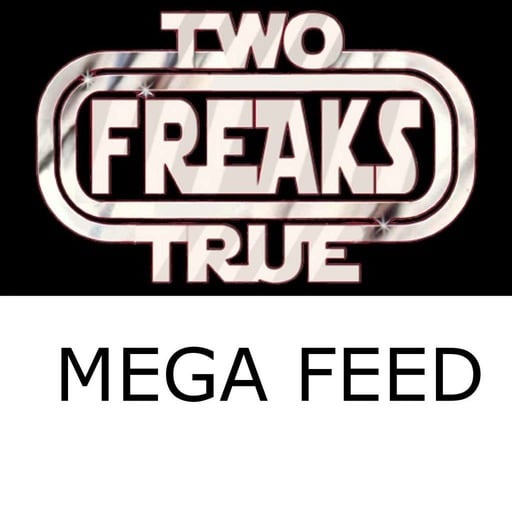Once Dr. Ray Damadian had the idea to create a machine that used nuclear magnetic resonance to capture diagnostic data by scanning a human body, he still had to build it. And though he did, other scientists got credit for inventing the MRI.
Research:
- Bashir U, Rock P, Murphy A, et al. T2 relaxation. Reference article, Radiopaedia.org. https://doi.org/10.53347/rID-16494
- Bellis, Mary. "A Guide to Magnetic Resonance Imaging (MRI)." ThoughtCo, Apr. 5, 2023, thoughtco.com/magnetic-resonance-imaging-mri-1992133
- Bloch, Felix. “The Principle of Nuclear Induction.” Nobel Lecture. Dec. 11, 1952. https://www.nobelprize.org/uploads/2018/06/bloch-lecture-1.pdf
- Bloembergen, Nicolas. “Edward M. Purcell (1912-97).” Nature. April 17, 1997. https://www.nature.com/articles/386662a0.pdf
- Britannica, The Editors of Encyclopaedia. "Isidor Isaac Rabi". Encyclopedia Britannica, 3 Apr. 2024, https://www.britannica.com/biography/Isidor-Isaac-Rabi
- Britannica, The Editors of Encyclopaedia. "Paul Lauterbur". Encyclopedia Britannica, 2 May. 2024, https://www.britannica.com/biography/Paul-Lauterbur
- Britannica, The Editors of Encyclopaedia. "nuclear magnetic resonance". Encyclopedia Britannica, 25 Apr. 2024, https://www.britannica.com/science/nuclear-magnetic-resonance
- Damadian, Raymond, and Jeff Kinley. “Gifted Mind: The Dr. Raymond Damadian Story.” Master Books. 2015.
- Damadian R. “Tumor detection by nuclear magnetic resonance.” Science. 1971 Mar 19;171(3976):1151-3. doi: 10.1126/science.171.3976.1151
- Deutsch, Claudia H. “Patent Fights Aplenty for MRI Pioneer.” New York Times. July 12, 1997. https://www.nytimes.com/1997/07/12/business/patent-fights-aplenty-for-mri-pioneer.html
- “Dr. Edward Purcell, 84, Dies; Shared Nobel Prize in Physics.” New York Times. March 10, 1997. https://www.nytimes.com/1997/03/10/us/dr-edward-purcell-84-dies-shared-nobel-prize-in-physics.html
- Drew Z, Jones J, Murphy A, et al. Longitudinal and transverse magnetization. Reference article, Radiopaedia.org (Accessed on 03 Jun 2024) https://doi.org/10.53347/rID-60738
- "Edward Mills Purcell." National Academy of Sciences. 2000. Biographical Memoirs: Volume 78. Washington, DC: The National Academies Press. doi: 10.17226/9977
- :"Felix Bloch." National Academy of Sciences. 1994. Biographical Memoirs: Volume 64. Washington, DC: The National Academies Press. doi: 10.17226/4547
- LAUTERBUR, P. Image Formation by Induced Local Interactions: Examples Employing Nuclear Magnetic Resonance. Nature242, 190–191 (1973). https://doi.org/10.1038/242190a0
- National Academies of Sciences, Engineering, and Medicine. 1994. Biographical Memoirs: Volume 64. Washington, DC: The National Academies Press. https://doi.org/10.17226/4547.
- National Academies of Sciences, Engineering, and Medicine. 2000. Biographical Memoirs: Volume 78. Washington, DC: The National Academies Press. https://doi.org/10.17226/9977.
- Hofstadter, Robert. “Felix Bloch.” National Academies of Sciences, Engineering, and Medicine. 1994. Biographical Memoirs: Volume 64. Washington, DC: The National Academies Press. https://doi.org/10.17226/4547.
- Isidor Isaac Rabi – Biographical. NobelPrize.org. Nobel Prize Outreach AB 2024. Tue. 4 Jun 2024. https://www.nobelprize.org/prizes/physics/1944/rabi/biographical/
- Jones J, Howden W, Rock P, et al. T1 relaxation time. Reference article, Radiopaedia.org (Accessed on 03 Jun 2024) https://doi.org/10.53347/rID-6315
- Luiten, A.L. (1999). Magnetic Resonance Imaging: A Historical Introduction. In: Magnetic Resonance Imaging. Springer, Berlin, Heidelberg. https://doi.org/10.1007/978-3-662-03800-0_1
- MacWilliams, B. Russian claims first in magnetic imaging. Nature426, 375 (2003). https://doi.org/10.1038/426375a
- “Magnetic Resonance Imaging (MRI).” National Institute of Biomedical Imaging and BioEngineering. https://www.nibib.nih.gov/science-education/science-topics/magnetic-resonance-imaging-mri
- “The Man Who Did Not Win.” Sydney Morning Herald. October 17, 2003. https://www.smh.com.au/national/the-man-who-did-not-win-20031017-gdhlpn.html
- Odeblad E, Lindström G. Some preliminary observations on the proton magnetic resonance in biologic samples. Acta Radiol Suppl (Stockholm). 2008 Aug;434:57-61. doi: 10.1080/02841850802133337
- Paul C. Lauterbur – Biographical. NobelPrize.org. Nobel Prize Outreach AB 2024. Tue. 4 Jun 2024. https://www.nobelprize.org/prizes/medicine/2003/lauterbur/biographical/
- Plewes, Donald B., PhD, and Walter Kucharczyk, PhD. “Physics of MRI: A Primer.” MR Physics for Clinicians. April 12, 2012. https://doi.org/10.1002/jmri.23642
- Prasad, Amit. “The (Amorphous) Anatomy of an Invention: The Case of Magnetic Resonance Imaging (MRI).” Social Studies of Science, vol. 37, no. 4, 2007, pp. 533–60. JSTOR, http://www.jstor.org/stable/25474534
- Purcell, E.M. et al. “Resonance Absorption by Nuclear Magnetic Moments in a Solid.” Physics Review. January 1, 1946. https://journals.aps.org/pr/pdf/10.1103/PhysRev.69.37
- “Raymond Damadian.” Lemelson-MIT. https://lemelson.mit.edu/award-winners/raymond-damadian
- Sandomir, Richard. “Raymond Damadian, Creator of the First M.R.I. Scanner, Dies at 86.” New York Times. Aug. 17, 2022. https://www.nytimes.com/2022/08/17/science/raymond-damadian-dead.html
- Serai, Suraj, PhD, and Tony Dandino. “Why are MRI scans so loud?” Cincinnati Children’s Radiology Department Blog. October 13, 2016. https://radiologyblog.cincinnatichildrens.org/whats-with-all-the-noise/
- Sullivan, Walter. “Five Named as Winners of Lasker Medical Research Awards.” New York Times. Nov. 15, 1984. https://www.nytimes.com/1984/11/15/us/five-named-as-winners-of-lasker-medical-research-awards.html
- National Academies of Sciences, Engineering, and Medicine. 2000. Biographical Memoirs: Volume 78. Washington, DC: The National Academies Press. https://doi.org/10.17226/9977.
- Wakefield, Julie. “The ‘Indomitable’ MRI.” Smithsonian. June 2000. https://www.smithsonianmag.com/science-nature/the-indomitable-mri-29126670/
See omnystudio.com/listener for privacy information.


 Emissions
Emissions







